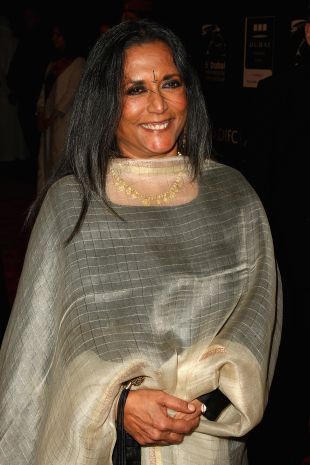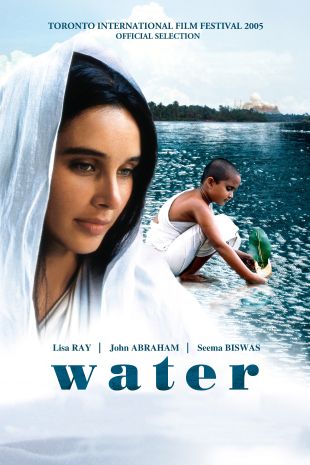One of the most provocative and exciting new directors to make her mark on world cinema at the turn of the millennium, Deepa Mehta is known for her rich, complex explorations of the cultural taboos and tensions at play in the society of her native India. Beginning with 1996's controversial Fire, Mehta embarked on her ambitious trilogy of the elements: fire, earth, and water. Earth, the trilogy's second installment, was released in 1998.
Born in India in 1950, Mehta received a degree in philosophy from the University of New Delhi. After immigrating to Canada in 1973, she embarked on her professional cinematic career as a scriptwriter for children's films, and in 1991, she made her feature-film debut as a director and producer with Sam & Me. The story of an unlikely friendship between a Muslim boy and an old Jewish man -- and the familial disapproval it engenders -- Sam & Me won the first Honorable Mention in the Camera d'Or category of the 1991 Cannes Festival. Mehta followed this triumph with Camilla three years later; another story of an unlikely friendship (this time between an unsatisfied young wife [Bridget Fonda] and a free-spirited old lady [Jessica Tandy]), it had the primary distinction of being Jessica Tandy's penultimate movie.
After producing a lesbian drama, Skin Deep, in 1995, Mehta embarked on Fire, the first installment of her elements trilogy. The 1996 film, which dealt with the politics of sexuality, centered on the relationship between two unhappily married Indian women. Due to its lesbian content and its commentary on the rights of women, Fire caused no shortage of controversy in India, particularly among Hindu fundamentalists who pressured the government to ban the film. Fire was ultimately re-released uncut in India, and it enjoyed a significant amount of international acclaim.
Earth, which was adapted from Bapsi Sidhwa's novel Cracking India, premiered at the 1998 Toronto Film Festival. A film that centered on the politics of land and nationalism, it was set amongst the catastrophic turmoil that accompanied the 1947 partition of India from Pakistan. Told from the viewpoint of an eight-year-old girl, it was an extremely ambitious project, and it met with a mixed reception. Following its release, Mehta embarked on Water, the trilogy's last installment. Focusing on the politics of religion, the film met with trouble from the beginning of its production in the Hindu holy city of Varanasi. A faction of Hindu fundamentalists leveled death threats at Mehta, rioted, and did thousands of dollars of damage to the film's set, forcing the director to withdraw from the state of Uttar Pradesh (where Varanasi is located) all together. Despite the turmoil surrounding the production of her film, Mehta vowed that it would be completed, describing the campaign against it as "pre-production censorship imposed by thugs."
Before Mehta was able to complete the elements trilogy, she took a light-hearted detour in 2002 with Bollywood/Hollywood. Satirizing the traditional Indian romantic comedy musical, the film drew mixed reponses from audiences, some of whom loved her foray into lighter fare, while others thought it was a gigantic misfire. The next year, Mehta returned with The Republic of Love, adapted from the novel by Carol Shields, which explored the state of love and relationships through the story of one modern couple. In 2004, Mehta finally completed her long-gestating film Water, bringing the trilogy to a close.



